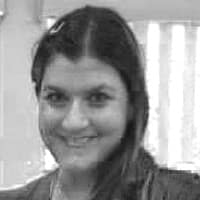Math Professor Receives NSF Funding To Advance Wireless Communications Research

Dr. Sirani Mututhanthrige Perera, associate professor in the Department of Mathematics, received funding from the division of Electrical, Communications and Cyber Systems at the National Science Foundation for a project aimed at improving, and better monitoring, wireless communications.
The $250,000 grant, on which Perera is the principal investigator, is meant to advance research in artificial intelligence chip design using machine learning and low-complexity algorithms. The work will also enhance the detection capabilities of cyberthreats, such as radio frequency jamming of cellular networks, GPS jamming and interference to avionics and air traffic control instrumentation, such as radar.
Dr. Houbing Song, associate professor in Embry-Riddle's Department of Electrical Engineering and Computer Science, is the project's co-principal investigator. The Embry-Riddle faculty will lead efforts within the scope of the grant to engage female students in STEM research and provide mentoring.
The project enlists three universities, including Embry-Riddle, with a total grant amount of $750,000. The project's lead principal investigator is Dr. Arjuna Madanayake, associate professor in the electrical and computer engineering department at Florida International University. Dr. Francesco Restuccia, assistant professor in electrical and computer engineering, is a principal investigator from Northeastern University. The team will use theories and concepts in mathematics, machine learning and digital signal processing to advance radio frequency-based wireless communications. The team will also collaborate with Dr. Thushara Gunaratne, digital signal processing engineer at the Dominion Radio Astrophysical Observatory in British Columbia, on radio frequency-to-radio telescope issues.
Perera emphasized the importance of the mathematics that will be used in the research.
"The majority of people see mathematics as an individual subject composed of numbers, symbols and formulas," Perera said. "For me, linear algebra is the centerpiece of engineering, computer science, data science and physical science, and it allows us to explore the intertwined nature of these fields to answer the demand for technology enhancement and future investment, and to grow convergence of research in STEM disciplines."

 Melanie Stawicki Azam
Melanie Stawicki Azam